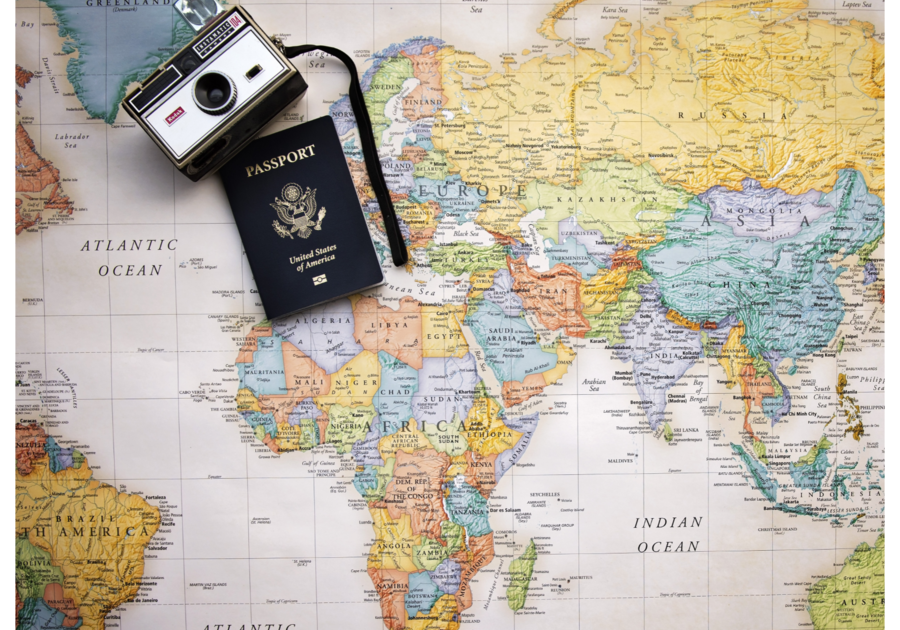image source: Pamjpat from Pixabay
Note: We must adhere to the country's departing and arrival protocols at all times. Read on International Travel for travel advisories.
We've seen all the disasters as we begin the new year of 2020. The locust infestation in East Africa and Pakistan, the earthquakes in Asia, the bush fires in Australia, and there could be more that didn't make it to international news. But nothing is alarming as the 2019-nCOVID, Corona Virus, or COVID. So many travel plans are altered. It is easy to postpone leisure or bucket list travel in an emergency crisis. But what if there is no choice but to travel in an emergency situation? Emergency or not - it is our responsibility to stay safe when we travel abroad.
1. Register with the State Department’s Smart Traveler Enrollment Program (STEP)
U.S. citizens and nationals traveling and living abroad are encouraged to register their trip with the nearest U.S. Embassy or Consulate.
- Receive important information from the Embassy about safety conditions in your destination country, helping you make informed decisions about your travel plans.
- Help the U.S. Embassy contact you in an emergency, whether natural disaster, civil unrest, or family emergency.
- Help family and friends get in touch with you in an emergency.
Read my story on how STEP helped me made my informed decisions when I was offered to travel in an emerging global crisis.
2. Make sure you know how to get in touch with the U.S. Embassy or consulate at your destination
Click to find nearest U.S. Embassy or consulate at your destination. Write down — or save in your cell phone the address and telephone number. Although we don't rely on the government for assistance when we travel. But you can reach out to the embassy in an emergency, whether natural disaster, civil unrest, lockdown, Victims of Crime, Arrest or Detention Abroad in your destination, including U.S. Citizens Missing Abroad. Kindly note that by taking a U.S. government coordinated transport, evacuees are obligated to repay the cost of their transportation.
Please note that the embassy is not emergency responders – if you need emergency medical attention or police assistance, contact the local authorities directly if you can.
3. Know your emergency numbers - or what is 911 abroad?
911 primarily works in the United States but not every country. Here's a reference list of emergency contact numbers in foreign countries. Write down — not only saving in your cell phone—the number used at your destination. The important numbers are ambulance, fire department, and police. Write down a few helpful words in the language or dialect at your destination such as help, police, and fire.
4. Print a copy of your passport, important phone numbers, and travel information
Paper copies ensure that you won’t need to depend on your cell phone or computer during a disaster.
- Print a travel itinerary and put a copy in an outside unlocked pocket in your luggage. This is also a good way for the luggage to be delivered to the destination when it is delayed or lost in transit.
- The paper copy of the passport makes it easier to request a new passport if the passport is lost or stolen abroad. Click here for lost or stolen passport abroad.
- List credit, debit, or money card contact information. In case they block charges abroad or the card is lost or stolen.
5. Know your destination's natural disasters, bring insect repellent and an electrical current converter and adapter to your packing list
- Knowing your destination's natural disaster will not only guide what to pack (in case of rainstorms). But also knowing what to do. You may know what to do in case of an earthquake, but how about a tornado? Knowing what to do during a tsunami, volcanic eruption, or other unfamiliar disasters can save your life.
- Mosquitoes are tiny insects that we don't see unless we are bitten. That is why a mosquito repellent is a must, whether traveling to places with mosquito-borne illnesses such as Zika, malaria, dengue, or not. Also anti-diarrheal over-the-counter medicine, in addition to any prescription medicines.
- A converter has to be used if the appliances are not dual voltage and not compatible with the electricity in your destination country. The adapter can be used for dual voltage when the plugs are not compatible. The converter and the adapter can be used together if both the electricity and the plugs are not compatible at your destination.
6. Download the Red Cross’s first aid app and bring a first-aid kit
No guarantee for help in an emergency but avoid being helpless. Get the app before you leave the United States, otherwise, you will be directed to mobile apps in the local language. A first aid kit is essential for cuts and blisters (most often than not to happen during traveling).
7. Develop a reunification plan, emergency exits, and evacuation routes
- Before traveling, inform someone of your itinerary. This way, they can alert the embassy in an emergency. Avoid getting lost in a disaster.
- When in a group, set up a meeting place when you enter a tourist destination. This is crucial as some or all of you are not familiar with the area.
- When staying in any room, it is smart to know your escape plan — whether you’re at home or abroad. If you ever need a way out, you will be grateful you took a few minutes to seek out emergency exits and evacuation routes ahead of time. There is a reason why evacuation routes are mostly posted at hotel doors. So you will see them first when you enter the room as you close the door.
8. Get your shots
The U.S. Centers for Disease Control recommends a list of vaccinations for specific destinations. Check your destination for their required vaccinations before leaving. Be sure to plan ahead so you get your shots in time.
9. Make sure your passport is valid for 6 months after the end of your trip and that it has two or more blank pages
Your passport is valid until the date of expiration. But you can't travel back on an expired passport if your passport expires while you're away. It is harder to expedite processing in an emergency. When you travel in an emergency crisis or situation, be prepared to remain abroad for an indefinite period of time. As there could be a lockdown on departure and arrival.
10. Consider health insurance whenever you are traveling abroad. For more information, see Insurance Providers for Overseas Coverage. Contact your insurance agent and ask for a medical evacuation so you can be evacuated when necessary.
This article was first published on March 24, 2020, and is regularly updated. Last update: July 16, 2023. Disclaimer: The information contained in this post, to the best of the author's knowledge, was accurate at the time of publishing. We do our best to ensure and maintain the accuracy of this information.
Get a FREE kid-friendly website, weekly email newsletter, calendar of events at Downtown Las Vegas, activities, attraction guides, and more. Sign-up by clicking HERE! For even more fun, follow us on Facebook, Instagram, Twitter, and Pinterest!
|








